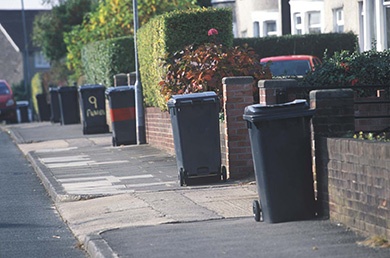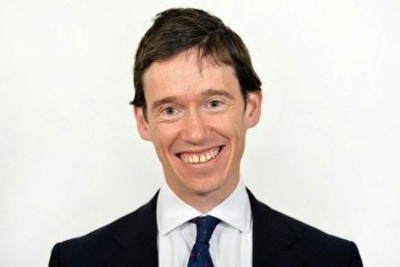Collection consistency group considers harmonisation
 Resources Minister Rory Stewart has asked the Waste & Resources Action Programme (WRAP) to investigate the opportunities and challenges of implementing greater consistency in the collection of household waste and recycling.
Resources Minister Rory Stewart has asked the Waste & Resources Action Programme (WRAP) to investigate the opportunities and challenges of implementing greater consistency in the collection of household waste and recycling.
WRAP is leading the Harmonisation and Consistency Working Group, which is researching the possibility of realising Stewart’s vision of giving local authorities (LAs) a limited choice of ‘five or six’ different collection systems within the next 10 years.
LAs, waste management contractors, recyclers, producers and retailers are also involved in the group, which has met three times so far. It intends to explore the options and develop a set of recommendations to present to the Department for Environment, Food & Rural Affairs (Defra) later this month.
Defra has confirmed that it is awaiting the report and will consider its recommendations before determining its next steps with regards to pursuing harmonisation.
Implications and potential costs
According to WRAP, the group has been looking at possible scenarios including how the consistency of materials collected, collection methods and standardisation of containers could help to improve quantity and quality of recycling and public participation.
It has modelled the costs and benefits of these scenarios and expects to produce a selection of options that would enhance consistency for LAs to consider based on their local circumstances and communities.

Reports have surfaced this week that the group has targeted London for early trials after Stewart described moving between boroughs’ differing systems as crossing ‘Berlin Walls’ of recycling, but a spokesperson for the department has told Resource that there are currently no plans to hold harmonisation trials in London.
The spokesperson said: “Greater consistency in household waste collection could potentially reduce costs for local authorities and make it easier for householders to recycle more.
“With WRAP and partners, we are now looking into the opportunities and benefits from having greater consistency.”
Group ‘not looking for a one-size-fits-all approach’
Marcus Gover, Director at WRAP, said: “Over the last few months the group has met formally three times, and we are all working together very constructively, with an eye on the prize, which is to improve recycling, minimise costs and make it easier for the public to recycle.
“We are not looking for a one-size-fits-all approach. It is more about trying to identify a small number of approaches to recycling collections that will increase yields and quality, improve services while reducing costs and complying with regulations. We also recognise that change won’t happen overnight so we are looking for a vision that local authorities could work towards as contracts expire and services are refreshed.”
Stewart seeking consistency
Stewart declared his intentions to seek a solution to the variation in council collection systems at this October’s Conservative Party Conference.
Speaking at a fringe session, the minister expressed a desire to make systems more uniform over the coming decade, suggesting that a choice of ‘five or six different systems’ could be suggested to LAs. He admitted, however, that any framework created would most likely be voluntary, with LAs still having the power to choose their collection system.
He said, at the time: “It is mad in terms of us as householders, crossing those ‘Berlin Walls’ on London streets and trying to work out what is in our waste. It is mad from the point of view of the waste industry trying to work out how to get any economies of scale, it’s mad in terms of the councils themselves. It doesn’t save them any money having these different systems for waste.
“If we can have, realistically, five or six different systems, we end up in a position where it is better for the ratepayer, better for the councils and better for the environment.
“A lot of these people have signed contracts that are 20, 25 years long, but over the period of the next 10 years, it is perfectly realistic, I believe, for 70 per cent of councils to have signed up to three or four different types of recycling, and the only thing that would be required is leadership, energy and a bit of a team.”
Learn more about the case for more consistency in recycling collections.







